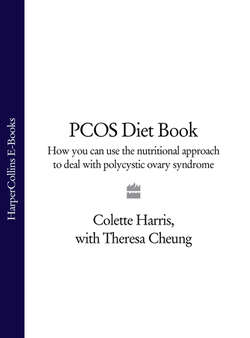Читать книгу PCOS Diet Book: How you can use the nutritional approach to deal with polycystic ovary syndrome - Theresa Cheung - Страница 29
How?
ОглавлениеIf you don’t drink enough you will start to feel dizzy, tired and could get headaches and stomach upsets. It’s very important that you drink pure, clean (filtered, if necessary) water throughout the day, even if you don’t feel thirsty. If you are feeling thirsty you are already dehydrated.
Should you have poor digestion, drink more water between meals and less during meals. When you’re sick or under extra physical or emotional stress, drink more. If you’re shorter or lighter than average you don’t need to force yourself to drink as much as a taller, larger person. If it’s hot or you are losing more fluids through perspiration, your fluid intake needs to be increased.
Don’t forget that when you exercise your need will increase dramatically. Athletes in heavy training can use as much as 10 litres a day. Becoming dehydrated during exercise will have a major impact on your performance or ability to continue and get the maximum benefit. Even small losses of 2–3 per cent result in a 10 per cent reduction in strength.
Limit your tea, coffee and alcohol intake. This is because coffee, tea and alcohol raise blood-sugar levels, and therefore insulin levels. Water is the best drink for quenching thirst and hydrating the body to help prevent dry skin, sore eyes and wrinkles. Fresh fruit juice or diluted juice are suitable. Watch out for fruit juice ‘drinks’ posing as fresh fruit juice but which are really just expensive fakes. Try some of the better-quality squashes and cordials. There are also a wide number of very good herb and fruit ‘teas’ available (they aren’t, strictly speaking, teas, but just use the name as they are infused with hot water).
Fruits and vegetables count towards your fluids because they consist of around 90 per cent water. They supply it in a form that is very easy for your body to use, at the same time as providing the body with a high percentage of vitamins and minerals.
One way to make sure you drink enough fluids is to fill a pitcher or a bottle with your targeted amount of water and drink it throughout the day. Take it with you in the car or to work, or keep it nearby when you’re reading or doing other activities. If the container is empty by bedtime, you’ve achieved your goal.
